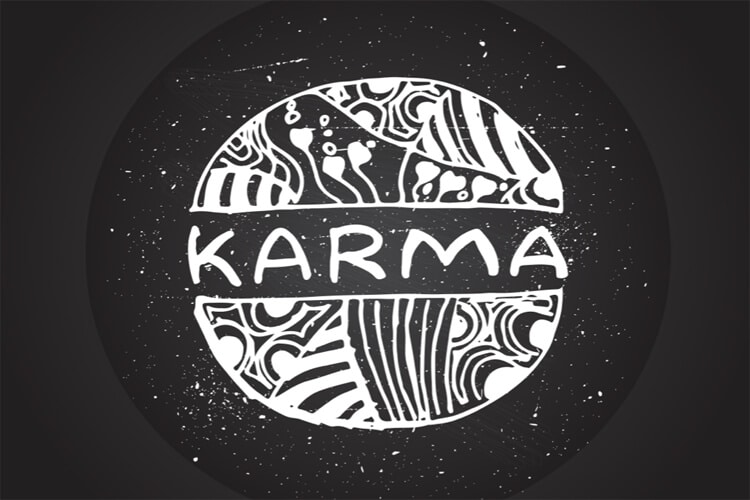Karma is not what we think bad thing someone does to us happens to them, at least not as simple as that. We get to the root of this just energy coming from Indian ideology and answer questions about karma together.
What is Karma?
Karma represents the ethical dimension of the rebirth process. It is a belief often found among the religious traditions of India. Indian soteriologies postulate that future births and life situations will be conditioned by actions performed in one’s present life.
In short, we can say that all our mental and physical actions have a return to us. Even if we do not see it in our current life, it may have effects on us in another life (reincarnation). Karma serves two main functions in India. One of them is its place in moral philosophy. It provides the main motivation to lead a moral life. It serves as a first-hand explanation of the existence of evil.
According to Sadhguru, what you call “my life” is a certain amount of energy controlled by a certain amount of information. A certain amount of life energy is loaded with a certain amount of information. Together, this body of knowledge is you. You become a certain kind of character (which changes/shapes over time) according to the type of information that enters you.
From the moment you are born until now, what kind of family, home, friends, what you do and don’t do all affect you. Every thought, feeling and action comes only from the past impressions you have had inside. The past impressions of your life reach far beyond the moment you were born, they are connected.
However, with your current perception, at least from the moment you were born, what kind of parent, family and education you have, what kind of religious and social background, what kind of cultural realities, all these impressions are a whole. In Hinduism it is largely believed that the soul, the purusha, escapes death and is reborn in a new body, inheriting karma from a past life.
Sanchita Karma
This is the totality of karma from which life evolved, from a single-celled animal to even inanimate matter. All the information is there. It is believed that you can understand the nature of the universe if you close your eyes, become aware enough, and look (inside) yourself. We can say that it is a body of knowledge that goes back to creation.
Prarabdha Karma
This is a certain amount of knowledge given for life. Depending on the vitality of your life, life allocates to itself how much information it can receive. Creation is merciful and powerful. If it gives you all the karma you have, you die because you can’t carry it.
At present, many people suffer from traces of simple memories of 30-40 years of this life. If they had been given a hundred times this memory, they could not bear it. Nature gives prarabdha as much memory as you can handle.
Effect
The doctrine of karma suggests that one individual’s karma cannot have an impact on another person’s life. In fact, while karma is unique to each individual in theory, many aspects of Indian beliefs reflect the widely held belief that karma can be shared.
For example, the doctrine of transfer of merit, in which one person can transfer his good karma to another, is found in both Buddhism and Hinduism. Ancestral offerings and other rituals for the departed, actions performed by the living are believed to affect the well-being of the dead.
Source: 1
What is Yin Yang Philosophy? How does it apply to daily life?
















